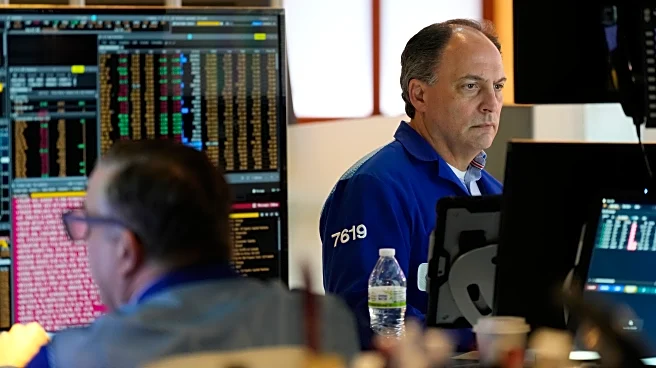Rapid Read • 8 min read
President Trump announced his intention to nominate Stephen Miran, Chairman of the Council of Economic Advisers, to fill a temporary vacancy on the Federal Reserve Board. This vacancy arose following the resignation of Fed Governor Adriana Kugler, who returned to her academic position at Georgetown University. Miran's term would expire on January 31, 2026, and requires Senate approval. The nomination comes as the White House continues to search for a permanent appointee for the 14-year term starting February 1. Trump is also considering options for replacing Fed Chair Jerome Powell, whose term ends in May 2026. Miran has previously advocated for increased presidential control over the Fed, including shorter terms for board members and nationalizing the Fed's regional banks.
AD
The nomination of Stephen Miran to the Federal Reserve Board is significant as it could influence the central bank's monetary policy direction. President Trump has been vocal about his desire for lower interest rates, and Miran's appointment could provide a more direct avenue to achieve this goal. Miran's views on increasing presidential control over the Fed and ending the 'revolving door' between the executive branch and the Fed could lead to substantial changes in the institution's governance. The Senate's approval process, which has been slow for Trump appointees, will be crucial in determining whether Miran can implement his ideas during his short tenure.
The Senate Banking Committee will conduct a hearing for Miran's nomination, followed by a series of votes before the full Senate. The Senate is currently on summer recess until September 2, which may delay the confirmation process. If confirmed, Miran would participate in four policy-setting meetings before his term ends, including one on September 16-17. The Fed's current policy rate remains at 4.25%-4.50%, but recent labor market data and inflation concerns could prompt discussions on rate adjustments in upcoming meetings.
Miran's nomination highlights ongoing debates about the balance of power between the executive branch and independent institutions like the Federal Reserve. His proposals for nationalizing regional banks and increasing presidential influence could reshape the Fed's role in the U.S. economy. These changes may have long-term implications for monetary policy and the Fed's independence, sparking discussions on the ethical and governance aspects of such reforms.
AD
More Stories You Might Enjoy











